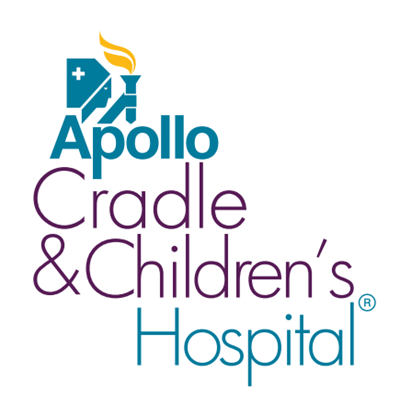Fetal anomaly scanning is an important part of antenatal care, offering a detailed insight into the development of the unborn baby. It involves taking detailed images of the baby and can detect anomalies like structural abnormalities, genetic conditions, and chromosomal defects.
This scan provides a wealth of knowledge that allows parents to make informed decisions about their pregnancy journey. Furthermore, it can also provide peace of mind to expectant parents who want to ensure that their baby is developing as expected.
What is a Fetal Anomaly Scan?
A Fetal Anomaly Scan is an ultrasound that checks the baby's development during pregnancy. It looks at the baby's heartbeat, size, and position and screens for any structural anomalies or birth defects.
This scan is recommended between 18 and 21 weeks of gestation, and the results can indicate if there are any chromosomal abnormalities such as Down syndrome or physical abnormalities such as spina bifida.
The scan will also check for any other potential issues with the placenta or amniotic fluid levels. A follow-up scan may be required if any problems are detected.
Who qualifies for a Fetal Anomaly Scan?
A fetal anomaly scan is offered to women who are between 18 and 21 weeks pregnant. The scan is recommended for all pregnant women, regardless of age, but especially for those over 35 and those with a family history of genetic conditions.
It is also advised for mothers who have had a previous miscarriage or whose baby was found to have an abnormality in the first-trimester screening tests.
If there is any other medical reason that raises concerns about the unborn baby's health, then the doctor may recommend a fetal anomaly scan.
How should a patient prepare for a Fetal Anomaly Scan?
It is important to prepare for a fetal anomaly scan by eating normally before the appointment, wearing loose clothing, and bringing along a full bladder. This will make it easier to obtain the best images of your baby during the scan.
It is also recommended that you bring someone with you for emotional support. A fetal anomaly scan takes about an hour and can be done any time from 18 weeks of pregnancy on.
What are the benefits of a Fetal Anomaly Scan?
A Fetal Anomaly Scan (FAS) is an ultrasound scan used to assess the physical development of a baby in the womb. The scan is usually done between 18 and 20 weeks of pregnancy, allowing for a detailed examination of the fetus's head, spine, heart, stomach, and other organs.
Benefits of a fetal anomaly scan include early detection of any abnormalities, such as Down syndrome or birth defects; improved planning for delivery; and detection of any issues with the placenta.
A fetal anomaly scan can also enable expectant parents to bond with their unborn child by providing them with images of their baby.
When would a doctor suggest undergoing a Fetal Anomaly Scan?
Patients may be advised to undergo a Fetal Anomaly Scan around the 20th week of pregnancy. This scan is used to screen for potential birth defects and anomalies in the fetus, such as congenital heart disease, cleft lip or palate, neural tube defects, and skeletal dysplasia.
It can also be used to check a baby's growth and development. The scan includes an ultrasound examination with special attention paid to the baby's head, spine, and abdominal wall, as well as blood tests of the mother.
Conclusion
A fetal anomaly scan is an important procedure for pregnant women that helps detect any abnormalities in the fetus. It involves ultrasound scanning and allows the medical team to look at the baby's organs and check their development.
The results of this scan provide useful information to help make informed decisions regarding the health and safety of both mother and baby.
Fetal anomaly scans are a critical tool for providing expectant mothers with peace of mind throughout their pregnancy, allowing them to rest assured that their unborn child is safe and healthy.
Request an appointment at Apollo Cradle, Hyderabad - Kondapur. Call 1860-500-4424 to book an appointment.
The most common fetal anomalies that can be diagnosed include congenital heart defects, Down syndrome, skeletal dysplasias, neural tube defects, abdominal wall defects, and chromosomal abnormalities.
There are no known risks associated with the scan itself. However, the results may cause emotional stress for the parents if an abnormality is detected.
The results typically take one to two weeks to process.
Fetal anomaly scans are approximately 75–90% accurate in detecting major structural abnormalities. However, some milder abnormalities may not be detected until later in the pregnancy or at birth.
If an abnormality or defect is detected during your fetal anomaly scan, it's important to follow up with your healthcare provider for further evaluation and discussion about potential treatment options or tests that may be required for further diagnosis and monitoring of the condition.
Our Doctors
Treatments
- Blood Tests
- Down's Syndrome Screening
- Early Anomaly Scan
- Fetal Anomaly Scan
- Fetal Echocardiography Scan
- Fetal Ultrasound
- Fetal Well-Being Scans With Fetal Doppler
- Nuchal Translucency (NT Scan)
- Pre-eclampsia Screening
- Pre-Natal Screening & Test
- Screening Test For Maternal Infections
- Surveillance And Monitoring Of Twin Pregnancies
- Tests For Thalassemia And Sickle Cell Disease
- Viability Scan

 95 Patient Satisfaction Score
95 Patient Satisfaction Score

